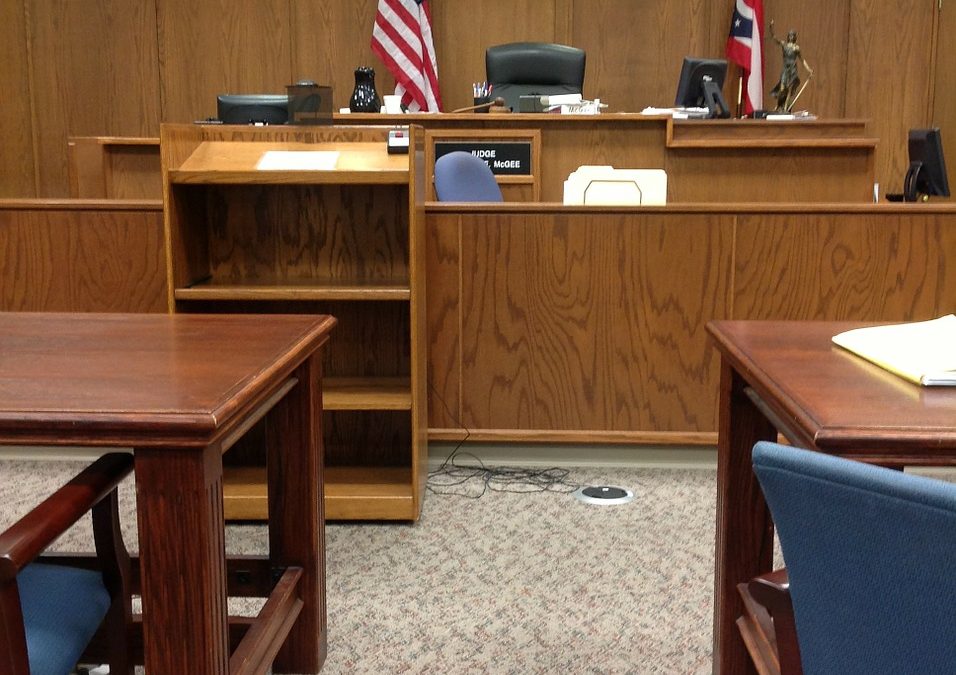Once a twenty year victim, and now a six year Survivor of Domestic Abuse (SODA®), I don’t often see myself as a victim any longer. But I have to tell you there are still those days. It occurred to me today that I should tell you about them too, because it’s not fair to just say you are a survivor and act like it’s all ok now. It’s not, it is definitely not. Living a free life is a gift that is priceless, but it doesn’t come without strings. I think it’s a fair way to explain life on the other side. We can’t erase the past, we have to live with it and move on – the best we can.
I was very naïve when I entered the divorce process. I honestly thought that I would enter the courtroom, tell my story, and the judicial system would circle the wagons and help me begin a new life. What I found was almost completely the opposite. I was told that I was not credible, I was told that I was not believable, and I was given results by judges that in no way looked out for my safety or regard.
1. COURTS STILL ARE OFTEN NOT SYMPATHETIC TO ABUSE VICTIMS AND SURVIVORS.
You should expect to be met with doubt, skepticism, and a whole lot of questioning about things that you honestly won’t want to talk about. The only way to handle it is to come prepared and don’t back down when they come at you. Meet in advance with your legal team and learn how your situation applies to the laws in your state and then prepare to give evidence that shows violations of those laws. Have dates, times, and examples ready whenever possible. In my case it went so far as my then husband actually claiming that he was a victim to my abuse. Let me warn you that that happens too. Be ready for anything and, most importantly, stay focused on your issues and don’t let them distract or confuse you, because most likely that will be their plan.
For those of us who are told by the courts to co-parent with our abusers, that is beyond “living with it and moving on.” That is “still living with it.” I fought for five years in the court system to get protections put in place so that I could live as peaceful a life as possible after my divorce and avoid contact with my ex-husband at any and all costs. I can’t think of a more difficult situation than finally breaking free from your abuser only to be told to meet up with that person on a continual basis for the custody exchange of your children. To not to so is to violate a court order. I thought it would get easier the moment I left. It didn’t.
2. COURTS OFTEN DO NOT THINK ABOUT WHAT YOUR LIFE WILL LOOK LIKE WHEN YOU LEAVE THE COURTROOM, SO YOU NEED TO PLAN FOR THIS.
It took me, my legal team, and finally a judge who saw what was going on, to finally put a plan in place that would protect me from unnecessary contact and communications with my ex-husband. I’m here to tell you what I did in case it can help you too. Ask your lawyer how to make this work for your situation well in advance of your divorce proceedings. Have a plan ready to go that meets your needs.
Safe transitions: The number one thing we need as abuse victims are a means to have safe transitions for our children during custody exchanges. We also want to do this in a way that does not scare our children or make transitions difficult. In some states there are safe centers now, built just for this purpose, and I love this idea. There are also exchanges in public places – that is an option if that works for your situation and one that you could request of the court before they make a ruling if your lawyer advises you to do so. In my case, my final case, the judge ordered exchanges at my home only, where I could stay safely inside. My children are older now and this works very well for us. You can request that your abuser stay in the car and not come to your door, you can request that your abuser not drive onto your property, ask your lawyer what is a fair request in your state.
Contact and Communication: There are two reasons for contact in our situation: one is for court-ordered exchange of schedule information, and the other is for emergencies surrounding our children. My legal team and I wrote a simple stipulation that email would be used for the exchange of court-ordered information only and that text messages would be used in the case of emergencies or real-time information exchange (medical emergencies, flat tire, stuck in traffic, etc). When these rules are followed they have worked brilliantly. Sit with your lawyer and make a list of why you would need to communicate with your soon-to-be ex-spouse. Then divide the list into “real-time” and “advance planning.” You can then decide how you want to exchange information. I would not consider taking a phone call for one moment from my abuser. It was going to be email and text only. That has definitely propelled me forward in my own healing process. There are also apps and online sites designed just for the communication purposes between ex-spouses. Consider what is best for you.
I can’t close here without being real, and the real truth is that noting is perfect. If our abusers are bent on abusing us then they will work really hard to keep doing so. And we all know that abusers are notorious for not following rules. My ex-husband sends a couple of really awful emails to me every year – emails with threats, emails that violate our divorce agreement, and emails that violate direct court orders. Always upsetting, I have to remind myself that without the protections we have put in place, this could be happening daily – as it once was. So, it could be much worse. And, if you have restricted your ex-spouse to “in writing only” and they call, you have a call log to prove it. If they threaten in email or text, you save those and file them away as proof too. If and when it becomes too bad, you have physical evidence that you can use to get more and better protections if that is what the situation calls for.
The key is come to your divorce prepared to protect yourself both in the courtroom and when you leave. Knowing what to expect, how to plan for it, and how to make a communication plan will set you lightyears in front of where you could have been. It could also save you from having to go back and try to modify a court order that did not go your way. You never know. Ask your attorney. I did.
For more information on domestic abuse visit TheSoda-Pop.com
If you are a victim of domestic abuse or domestic violence PLEASE call THE NATIONAL DOMESTIC VIOLENCE HOTLINE at: 1-800-799-7233 or visit http://www.thehotline.org for more information, help, and to make a plan for your safety.
Home Should be a Safe Place for Everyone™
#NotInOurHomes




